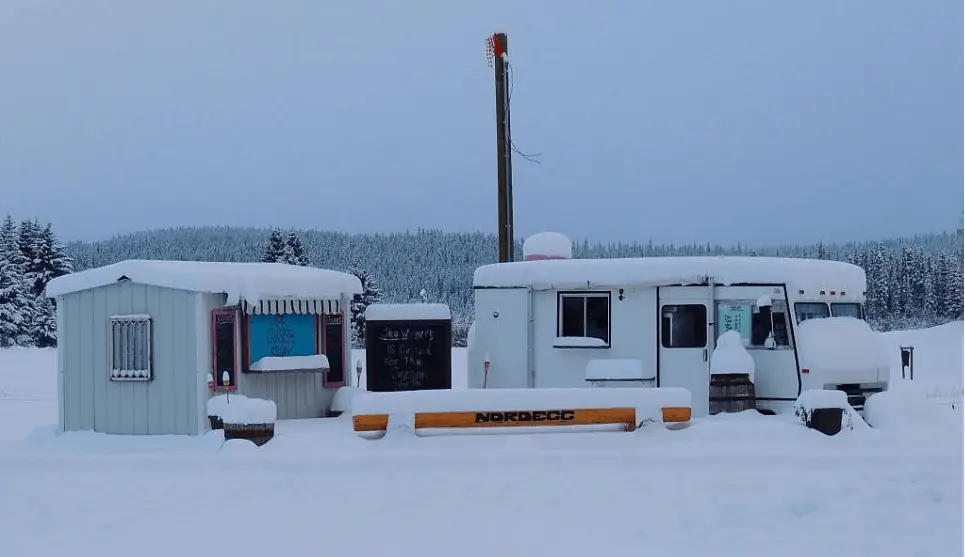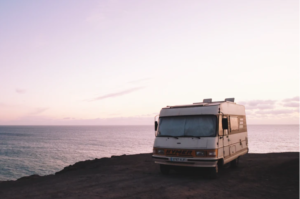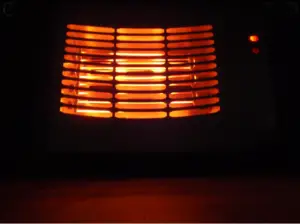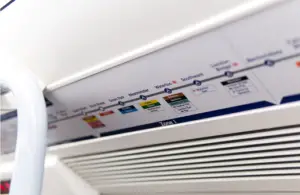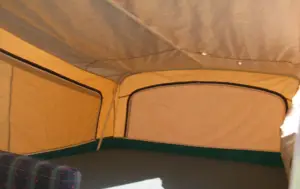Winter comes with temperatures that can destroy the RV pipes and plumbing systems due to freezing. Water present in plumbing systems is the sources of all issues.
So, if you aren’t going to camp, then keep the water out. And, if you are going to camp, then you need to take lot of actions to keep the water and pipes from freezing. Lets have a quick look at what actions can be taken to keep RV or camper pipes from freezing,
- Insulate the exposed pipes.
- Keep the camper or RV warm with various methods like heater.
- Insulate the RV as far as possible.
- Disconnect the external water hookup.
- Tanks need to be kept warm using insulation or tank heaters.
- Cover RV externally.
- Get a true four season RV , so if you haven’t bought one yet, then keep this point in mind.
Lets go through each of these points and few other actions that will help keep your RV in better conditions during falling degrees.
Make use of heat tape
Using a heat tape system can be a good way to keep pipes or hose in motorhomes from freezing. There are different types of heat tapes, you can check in a home improvement store for this.
It would use electricity to keep it heated. What you need to do is place the heat tape along the exposed pipes or hose and use an insulation to get it attached. You can use the self regulating heat tapes that control temperature to prevent the pipes from freezing.
Cut the tape as per your requirements and get it attached along the pipe or hose. You also get automatic heat control kits that can be bought in different lengths. They would come equipped with thermostat that would turn ON and OFF.
Make use of tank heater
When the temperature is really falling down, the best way to keep the water from freezing is to heat it. A tank heater for RV comes as a piece that can be attached easily below the fresh water tanks. It would have adhesive that helps sticking it underneath.
Heater has to be connected to electricity and once it starts working, heat is produced which helps in keeping the water at normal temperature. This is a great method and a lot of RV’s do come with this kind of portable tank heater pre-installed.
Use insulation tape
One of the easiest and less expensive way to protect your RV pipes from freezing is to use insulation tape. You need to wrap the insulation tape around exposed areas. This can be done when the temperature aren’t that low.
But, when you have very less pipe areas that are exposed, this method comes handy. Normally in a motorhome or travel trailer, you would have the piping well protected. But, few areas may be exposed. This is when you can simply cover them with insulation tape. You can buy insulation tape in any home improvement store at costs as less as $5.
Drain the pipe lines and blow compressed air
If you are going to store the RV, then depending on what the temperature could fall down to, you need to be prepared for it. Best way to winterize the RV is to make sure all the water is drained out and blow a compressed air through the pipes.
One can also use RV antifreeze to make it more secure against freezing. A RV is not similar to a house. Its not fully insulated and thus, special precaution need to be taken.
Make use of heat from bulb or light
A turned on bulb can produce some heat and placing it near the water tank or water pump can have some effect. While this method may not be highly effective, but may work in decent temperatures.
Also, you can have the light ON for a purpose and at the same time prevent the pipes and water from freezing. Remember, the winter cold may always not be that low but taking few simple preventive precautions is always helpful in winters.
Keep the hose disconnected from water supply
While you are at campground and have the direct water supply, make sure you are not continuously connected. This helps in keeping the cold water away. This is a precaution you can take to keep the water at decent temperatures. You would need to keep the fresh water tank full and use it wisely. Also, make sure the holding tanks aren’t full and keep room for more.
Insulate the holding tanks
The best method to keep the holding tanks and pipes from freezing is to insulate them as much as possible. You can use a soft towel, a much thicker one to keep the holding tanks from affecting due to low temperatures. Remember, normal insulation isn’t going to keep the water from freezing but if used along with other methods, overall the freezing can be prevented.
Drain the tanks when stored
While camping during winter has most chances of freezing pipes, storing of RV too can lead to freezing. But, if you had drained all the water then you should be good.
Storing the RV needs lots of steps to be followed. And, one of them is to make sure all the fresh water is drained from pipes. Winterizing an RV is an important aspect before storing the RV. Make sure all water is drained out, and thus there wont be any water itself to freeze and cause the damage.
Keep the heater On inside RV
While the RV is stored or even when you are camping make sure the heat is ON. Its an obvious one but you may want to keep it at 55-50 Fahrenheit. This can help you keep the piping system from freezing. But, pipes that are exposed still would need attention using above steps.
Use electric blanket for insulation or heating
One can also use electric heating blankets for covering the fresh water tank. This is similar to tanks heater. Depending on the size of the water tanks, you can choose either attachable tank heater or even blanket.
Using such electric heated blanket can give extra safety from freezing. When the temperature really goes way below water freezing, there are more chances of pipes getting damaged due to water freezing and you don’t want to take the chance.
Keep the black and grey valves shut off
While you are camping at a campsite, you may normally keep the valves open so that they don’t overfill. But, during freezing colds better to do away with this. Keep the valves shut off and release only when they are about to fill completely. This will keep the valves from freezing. You definitely don’t want the frozen valves.
Skirting material
Insulating the RV will keep it warm and one way to do this is to use skirt material. You can cover the exterior of the RV using skirting material layer, this will block cold wind from entering the RV.
Cover RV windows and vents in ceiling
Although adding skirting material on external will help protect from cold winds, take extra care in protecting from inside as well. RV ceiling vents will allow the heat to escape the RV and thus, bringing down the temperature.
Try to seal the vents with vent cushion or any other material. Make sure the windows too are sealed properly. Doing these small things will maintain good temperature inside the RV and ultimately help protect the pipes and other plumbing systems from freezing.
Get a four season RV
While one can try to protect the RV or pipes from winters, one better thought on this is to get a better RV itself. A true four season RV will have different properties, its upto you to inspect and check it thoroughly for winter protection.
A four season RV will have construction material that will be protective enough, will have insulation to prevent any air leakage inside. The floor, roof will be protected against cold leakage.
Air circulation with properly design layout that will have best window, door sizes. A design that works best for four season wont be an easily available one, and you will obviously pay more for that.
Venting, heating system need to be designed to withstand lower temperatures. A four seasons RV should not only be good at lowest temperatures but also at high degrees as well.
What are the chances of freezing pipes anyway
Almost all states receive snow, some receive it more than 100 inches while some will get less than 10 inches. But, the temperature will fall during winter and it could be a reason for you to worry.
Specially, when you don’t know, at what temperature it could cause a real issue. Water starts to freeze at 32 degrees and thus, you should look forward to temperatures around this range. At same temperature of 32 degrees, you will see snow as well. So, falling snow is a definite sign for you to worry. unless you took above mentioned precaution to protect the RV plumbing.
If the average temperature has been above 40-45 then there’s little to worry. Even then it depends to some extent on the type of pipes as well. But, with modern RV piping it should hold good at temperatures above 40.
Also, the freezing or damage may not happen in a single night. A continuous low temperature can cause the damage. A well protected and insulated RV however can withstand the low temperature as well. Thus, taking good care during such low temperature is key.
Falling snow could be due to sudden fall in temperature. But, it totally comes down to how long the temperature holds on to that. If it stays down to those lower degrees for more time then that could be a situation to worry about. Mostly the lowest temperature are seen during early morning between 4-6 am, keeping your RV with a heater Oo during such time will help a lot.
Importance of keeping the camper warm
Living full time in Rv or camper has unique challenges. And one of the most common challenge is living during winters. Especially, if you live in states that sees lot of snow, then be ready for a difficulties that can be worse.
Its not only pipes or plumbing that gets affected by cold, lot other elements in RV or camper are affected as well. Some people completely avoid using RV pluming systems during winters, like toilet, bathroom, sink or shower.
Using water in RV during colder temperatures means you are risking the freezing of pipes. Lets have a quick look at what care to be taken as a full time Rver,
- Keep RV insulated fully. Doors, windows, ceiling and floor need to be fully insulated. Small gap or openings can be enough to turn the RV into chilling cold chamber.
- Make sure heater is in well working conditions. Getting the RV ready before the winter starts is very important if you are full timing. You can try number of different things, but a working heater is all you need at the end. Even when the RV is stored, a heater can keep RV pipes and other plumbing from freezing
- Smaller the RV, better it is to keep warm. Bigger RV needs more efforts to keep it warm. Also, with smaller space, you will have little open areas and that means RV will remain warm. Obviously, it depends how big family is yours. There is no point in buying small RV than needed just to keep it warm.
Winter living in Towables
Smaller RV’s like pop up camper or smaller sized travel trailer could be hard ones for full time living. A motorhome with engine attached is a far better one for insulation.
Having a bigger motorhome like class A or class C generally makes it easier during winters, as they will have better heaters, and temperature control.
With travel trailer, be ready for extra protection and challenges. Among all the points that we discussed above, covering the travel trailer with a thick cover is one important method to keep it warm.
A hard sided travel trailer is much better in comparison to a tent trailer or pop up. A pop up camper with very thin walls is going to be much tougher one to live during freezing snow conditions.

